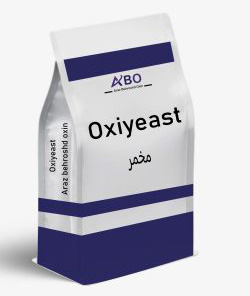
Yeast
Yeasts
Yeasts are a type of single-celled fungus that plays an important role in the fermentation process and food production. Below are the different types of yeasts and their uses:
Baker’s yeast (Saccharomyces cerevisiae)
Use: Used in making bread and baked goods
Property: Increases the volume of bread and creates a soft texture.
Alcoholic yeast (Saccharomyces pastorianus)
Use: Produces beer and alcoholic beverages.
Property: Ferment sugars into alcohol and carbon dioxide.
Wine yeast (Saccharomyces bayanus)
Use: Produces wine and fermented beverages.
Property: Ability to tolerate high concentrations of alcohol.
Non-alcoholic yeast (Brettanomyces)
Use: Used in some types of wine and beer.
Property: Creates specific and complex flavors.
Probiotic yeasts (Debaryomyces hansenii)
Application: Used in dairy products and probiotic supplements.
Feature: Helps improve gut health.
Industrial yeasts (Candida utilis)
Application: Production of microbial proteins and dietary supplements.
Feature: Use of agricultural waste as a food source.
Special yeasts (Pichia pastoris)
Application: In biotechnology to produce recombinant proteins.
Feature: Fast growth and ability to produce complex proteins.
Wild yeasts
Application: In the preparation of sourdough bread and some fermented beverages.
Feature: High flavor and aroma diversity.
Reason for the beneficial effects of yeast and yeast-based products:
Live yeast cells have probiotic effects
Yeast cell wall components have prebiotic effects
Yeast bioactive metabolites have paraprobiotic activity.
Yeasts with probiotic potential in poultry:
To identify a yeast that has probiotic properties, it should be evaluated for probiotic properties such as the ability to grow at 37 ° C, hydrophobicity, tolerance to gastric acids and bile salts, and immune properties such as hemolytic activity and susceptibility to antifungals. Some fungi that have probiotic potential in poultry include:
Saccharomyces cerevisiae
Saccharomyces boulardii
Candida (Pichia) guilliermondii
Kluyveromyces fragilis
Kluyveromyces lactis
Aspergillus oryzae
Effect of yeast consumption in animal feed
Yeasts have different strains, among which yeast cells from the Saccharomyces cerevisiae strain are the most important. This yeast has a unique ability to cause changes in the rumen and increase the ability to produce milk in cows. The use of probiotics can also significantly reduce the adverse effects of heat stress on reproductive performance by improving feed intake. Adding yeast to the diet of dairy cows will have a direct (through endotoxin reduction) or indirect effect on the immune system of dairy cows by affecting the negative energy balance. The aim of this study was to evaluate the effect of consuming Probiosac active live yeast from three weeks before to eight weeks after calving on lactation performance, feed intake and changes in urea, liver enzymes, cortisol, non-esterified fatty acids, beta-hydroxybutyrate in dairy cows during the transition period under heat stress conditions.
Packaging
Our yeast product is offered in a variety of convenient and easy-to-use packaging. These packaging are designed to prevent moisture and contamination.
Conclusion
Yeasts play a very important role in the food, beverage and biotechnology industries. Choosing the right type of yeast, depending on the intended application, can have a great impact on the quality of the final products.
For more information and advice on how to use, please contact us or visit our website
Categorised in: Products


